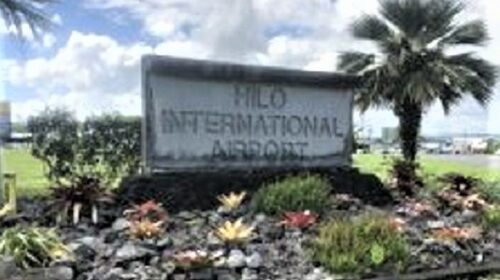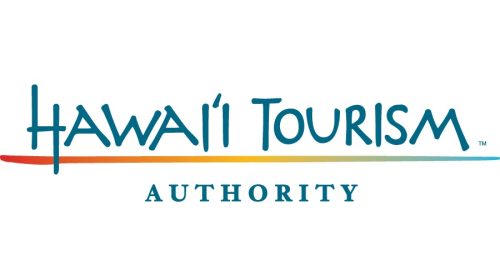Fate of Hawaii Tourism Authority Budget still unknown
HONOLULU: After many years of negative State audits, the 2018 audit of the Hawaii Tourism Authority (HTA) was described as “scathing” and highlighted specific insider deals, favoritism, non-bid contracts and a glaring lack of board oversight at the Hawaii Tourism Authority.
Push finally come to shove with the introduction of companion House and Senate bills with the House version becoming the vehicle. A recent Senate Draft 2 was heard and passed today (Tuesday) by the full Senate and makes severe budget cuts. The Senate amendment will send the legislation to a conference committee which is expected to be contentious. The conference committee will meet “after April 12th and before April 26th.”
The new Senate draft would reallocate as much as 40 percent of HTA’s share of hotel “transient accommodations taxes” (TAT) to other state agencies. HTA receives $108.5 million in transient accommodations taxes from the state Legislature each year with $26.5 million of it earmarked for the Hawai‘i Convention Center.
In a preemptive media release sent on Monday (below), HTA President and CEO George Szigeti attempted to justify keeping the full budget:

HTA Release (18-20)
HTA Sets the Record Straight on Tourism Funding Cuts Proposed by HB2010 SD2
HTA Implements Plan for Improvements in Response to State Auditor’s Report
George D. Szigeti, HTA president and CEO, commented, “Misinformation is being circulated that attempts to downplay the devastating effects that HB2010 SD2 will have on HTA’s tourism marketing if this bill is passed into law. Make no mistake, HTA will be forced to make significant cuts to its marketing programs that support Hawaii’s number one industry, and the people who will feel it the most are those whose jobs depend on tourism continuing to do well.
“HB2010 SD2 is completely unnecessary, it is counterproductive to what is best for tourism’s future, and it puts Hawaii at a competitive disadvantage to other global destinations that have far greater resources to fund their marketing efforts.”
Szigeti stated, “HTA’s annual budget of $108.5 million, which is wholly funded by the Transient Accommodations Tax, will be cut down to $60.3 million if HB2010 SD2 goes into effect. That is a drop of $48.2 million, or 44 percent. Funding to support HTA’s management of tourism for the State of Hawaii will be cut from $82 million to $60.3 million, while funding of $26.5 million to support the operations and obligations of the Hawaii Convention Center will be eliminated.
“Across the board cuts for all of HTA’s programs will be a consequence of HB2010 SD2, with tourism marketing and product enrichment programs taking the biggest hits. Our marketing budget in the current fiscal year is $60 million, which includes funding for promotions in major markets, the island chapter bureaus, air access support, meetings business, and digital marketing. In the next fiscal year starting July 1, our marketing budget will be cut to $49 million if this legislation goes into effect.
“Also, the approximate $14 million we provide in funding for product enrichment programs will be eliminated by HB2010 SD2. Community groups and nonprofit organizations that have annually relied on HTA for support of these programs will have to seek new funding from other sources due to this bill. This includes programs like the Visitor Aloha Society of Hawaii, the Junior Lifeguard Program, the Community Enrichment Program to support festivals and events, the Aloha Aina Program to protect natural resources, and the Kukulu Ola Program to perpetuate Hawaiian culture.
“Moreover, we will be forced to make significant cuts to HTA’s hardworking staff, which will compromise our capabilities to manage programs and develop initiatives supporting the tourism industry.”
HTA was created in 1998 to provide a comprehensive management of tourism for the State of Hawaii by putting in place a single agency whose various responsibilities were previously handled by several departments, none of which regarded tourism as their primary focus. Szigeti said that the cuts resulting from HB2010 SD2 will unravel the mission and purpose behind HTA’s formation.
HTA works with community organizations statewide to develop product enrichment programs that showcases Hawaii’s unique appeal and authenticity as a place and a people. Tourism marketing generates travel demand for the Hawaiian Islands, while the offering of community products in the form of festivals, special events, cultural celebrations, and arts and music programs serve as a key factor in drawing visitors to Hawaii and encouraging them to return. The diversity of enrichment programs is an integral component to reinforcing Hawaii’s brand as a world-class destination.
The product enrichment programs supported by HTA enhance the visitor experience while also strengthening communities by helping to sustainably manage tourism and balance its socioeconomic, cultural and environmental impacts.
Szigeti said, “HTA’s product enrichment programs are interconnected with Hawaii’s tourism marketing. These are programs that HTA’s community partners are proud to offer and visitors seek out to enjoy, programs that add to the excitement and memories of experiencing the Hawaiian Islands. Eliminating funding for these programs, as HB2010 SD2 proposes, will compromise Hawaii’s ability to attract visitors, resulting in reduced visitor spending and lowered state tax revenue produced by tourism.”
Szigeti noted HTA’s staff is applying the recommendations from the audit report on HTA issued in February by the State Auditor to improve its operations, internal processes and training of employees. A comprehensive plan of action for implementing the audit’s recommendations was immediately prepared by HTA’s staff and approved by the board of directors at its March 29 board meeting.
The 21 recommendations for improvements identified in the report are currently being executed by HTA’s management and staff and targeted for completion by the fourth quarter of this year. HTA will continue to monitor and assess these areas of improvements to ensure that compliance is ongoing.
“We are utilizing the State Auditor’s recommendations to become a better and stronger organization, which ultimately helps us to support the continued wellbeing of Hawaii’s tourism industry,” said Szigeti. “Last year, Hawaii’s tourism industry generated record high totals of $16.78 billion in visitor spending and $1.96 billion in state tax revenue, while also supporting 204,000 jobs statewide, the most ever. We are committed to continually strengthening tourism and maintaining its success for the good of Hawaii.”
In fiscal year 2018, the collection of Transient Accommodations Tax (TAT) from hotels and lodging properties in the Hawaiian Islands will generate a projected $546 million in revenue for the State of Hawaii. That will be a record high total for funds generated by the TAT.
“Driving travel demand for the Hawaiian Islands translates into generating higher TAT revenues, which is vital to the State’s economic health,” said Szigeti. “It’s imperative that the potential impact to the TAT be considered when evaluating HB2010 SD2 and how this bill will dampen the State’s ability to market Hawaii and provide community programs that help attract visitors to our islands.”
Since emerging from the Great Recession, the tax revenue generated by the TAT for the State’s general fund has steadily increased from $60 million in fiscal year 2011 to a projected $330 million in fiscal year 2018. This TAT revenue can be utilized by State officials to support community programs, social services, infrastructure and special areas of need for residents.
The balance of TAT revenue for fiscal year 2018 is dedicated annual funding allocated as follows:
$103 million to be divided among the four island counties;
$82 million to support HTA’s management of tourism for the State of Hawaii;
$26.5 million to support the Hawaii Convention Center’s operations and obligations;
$3 million to support the State Department of Land and Natural Resources; and
$1.5 million to support the Turtle Bay Conservation Easement Fund.
The Hawai‘i Tourism Authority is responsible for strategically managing the State of Hawaii’s marketing initiatives to support tourism. HTA’s goal is to optimize tourism’s benefits for Hawaii, while being attentive to the interests of travelers, the community and visitor industry. Established in 1998 to support Hawaii’s leading industry and largest employer, HTA continually strives to help ensure the sustainability of tourism’s success.



